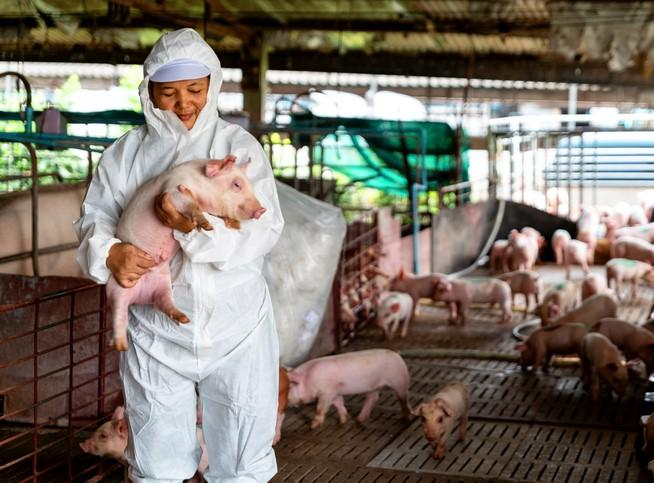A multi-agency report ties a reduction in antimicrobial consumption (AMC) in Europe to a decrease in overall antimicrobial resistance (AMR) in people and farm animals from 2014 to 2021.
The fourth joint report on integrated analyses of AMC was published yesterday in the EFSA Journal by the European Centre for Disease Prevention and Control (ECDC), the European Food Safety Authority (EFSA), and the European Medicines Agency (EMA). For the first time, the report focuses on AMC and AMR in Escherichia coli bacteria.
Use in farm animals dropped 44%
From 2014 to 2021, AMC in food-producing animals fell 44%, while it remained relatively stable in humans. E coli in both animals and humans is becoming less resistant to antibiotics, which the study authors suggest is a sign that worrisome trends in AMR can be reversed through the right actions and policies.
Bernhard Url, DVM, EFSA executive director, said that using fewer antibiotics in livestock pays off. "In most countries that reduced antibiotic use, we observed a corresponding decrease in resistance levels," he said in an EFSA press release. "This means that national efforts work. It also highlights the EU's commitment to the One Health approach, safeguarding both animal and global public health."
The authors also found that antibiotics such as carbapenems, third- and fourth-generation cephalosporins, and quinolones are linked to resistance to these antibiotics in E coli from people. Similarly, the use of quinolones, polymyxins, aminopenicillins and tetracyclines in farm animals is associated with resistance to these antibiotics in E coli in those animals. The relative strength of the associations varied markedly by antimicrobial class, microorganism, and sector.
Bacterial resistance in humans may be tied to bacterial resistance in food-producing animals, the researchers said. For example, Campylobacter jejuni and Campylobacter coli, which may be found in food-producing animals, may spread to people through food.
Tackling the AMR public health threat
ECDC Director Andrea Ammons, MD, MPH, said more efforts to reduce unnecessary AMC are needed to tackle the AMR public health threat. "In addition, strengthening immunisation programmes and enhancing infection prevention and control practices in communities and healthcare settings are essential to reducing the needs for antibiotics," she said in the release.
The report said AMR causes the death of more than 35,000 people in the European Union and European Economic Area, generating €11.7 billion ($12.7 billion) in healthcare costs each year.























